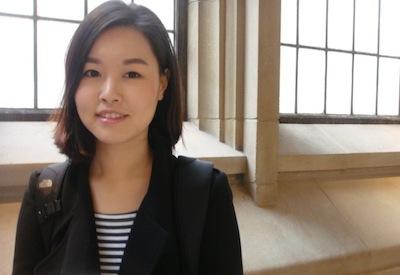
LSJ and Political Science senior Hye Jin Chang has been helping register South Koreans as part of her internship with the Consulate General of the Republic of Korea in Seattle.
“It’s the first time where Korea is allowing people overseas to participate in the election and I wanted to be a part of that new and changing electoral system,” Chang said.
Around 60,000 people are eligible to vote in Washington, Oregon and Idaho, yet only 2,100 have registered so far.
Chang said one of the difficulties is that since it is the first time that South Korea has allowed overseas voting, many people just don’t know about the opportunity.
“Adults are watching Korean news but students don’t generally do that, so students just don’t know about it,” she said. “Some students also think that government isn’t our thing, it’s what adults do and that this type of thing isn’t our responsibility, but a lot of things in law and government affect people like us.”
As an intern, she primarily works on advertising to students because while students have an interest in voting, they do not have the information or access to vote.
“It’s hard to get people to register because it’s a face-to-face job,” Chang said. “Gathering people is a personal thing and because it’s face-to-face, it can be very time consuming.”
Besides meeting with people at Korean-American events, Chang has also reached out to student groups and visited local Korean grocery stores or churches to try to inform eligible voters.
“We get a lot of voter registration at community places where we can get the most Korean residents to participate,” Chang said.
Chang said that her internship has allowed her to think about the influence of laws in society.
“What I learn in LSJ is that context really matters in law and that’s what I’ve noticed at my internship,” Chang said.
She explained that although overseas residents wanted the ability to vote, the reality is that many have not registered because of the complicated voter registration system.
In order for permanent residents in Washington, Oregon and Idaho to register, they must sign up in-person. Because many are unable to come to Seattle (which is the closest consulate), they are unable to register.
“The consulate has made several trips to Idaho and Oregon to get those registration forms and students from the University of Washington and University of Oregon have participated but it’s not the same as going person-to-person,” Chang said.
Chang believes that there needs to be some changes in the voter-registration law in order for people to vote.
“I wish there were more places so people didn’t have to travel to Seattle,” Chang said.
Chang said that she was surprised that people haven’t voted but she also thinks that norms in the Korean-American community have had an impact.
“Some people think that they are part of the U.S. because they are permanent residents and they don’t keep up with the politics of Korea and are absorbed with the politics in the U.S. instead,” Chang said.
Chang said that voting is very important because it allows people to influence what is happening in their country.
“People think it’s their choice to vote but it’s their commitment and people have an obligation to vote,” she said.
This article was composed by Charlotte Anthony.